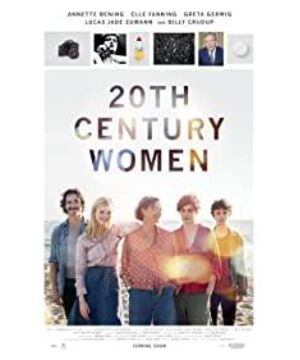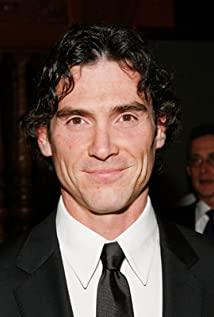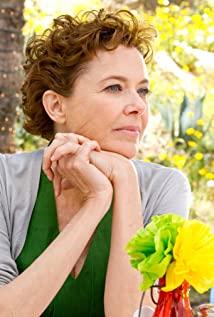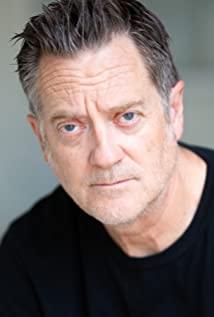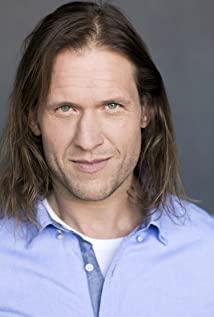My three favorite periods: Renaissance Europe, Republic of China China, and Twentieth Century America.
America in the 20th century, the lost generation, the jazz age, The Great Gatsby, Muhammad Ali's belt, the Woodstock Rock Festival, love and peace, the absolute symbol of freedom, the irrational state of sobriety, the role of women The transformation of...
In that golden age, everyone was like the protagonist, and everyone had a vivid image, constantly exploring the possibility of self.
"20th Century Women" is a movie about three women of different ages in that era.
Part One. Object/Item
For women in the 20th century, objects are the most direct representations
-DOROTHEA
Even if DOROTHEA is put into this era, she is still a super cool woman in my eyes, having experienced World War II, the first batch of independent women to enter the workplace, and a single mother. She not only has an open concept, but also pursues hard in this era of constant innovation, which is both romantic and lonely.
ford galaxy
IBM stock
Salem cigarettes
Birkenstocks shoes
Rabbit Republic by Richard Adams
-ABBIE
ABBIE is my ideal female appearance. She is avant-garde and radical, a romantic idealist artist. She constantly explores the meaning of life, bravely pursues herself, and strives for women's rights.
red hair
Susan Sontag, "On Photography"
condom
The punk/Talking Heads
pair of birds named max and carlotta
-JULIE
JULIE is a lost generation who is addicted to punk rock and drug abuse. She acts according to her own instincts and senses, and uses rebellious thoughts and behaviors to express her dissatisfaction with reality.
Judy Bloom "Forever"
M. Scott Pike, "The Road Less Traveled"
Part Two. Sex
The three women's attitudes towards the sexes are the funniest part of the film
Fragment 1. Sex that requires love as a basis
DOROTHEA danced with an ambiguous man in a bar, and when they were chatting happily, the man kissed her. She suddenly asked the man, "What does this kiss mean?" Even an independent and open professional woman like her could not accept sex without love. From her point of view, marriage and divorce all happen because of love and dislike. She still retains mundane stereotypes, such as finding it embarrassing to discuss gender and privacy in public.
Fragment 2. Sex that needs to be premised on meaning
At the family party hosted by DORATHEA, ABBIE was lying on the table and said in front of everyone: "I'm menstruating." In fact, this kind of thing can be said casually now, but in the last century It's still a challenge to the world. When DORATHEA embarrassedly told her not to say it on this occasion, she said, "It's not a big deal, if you want to have sex with a woman's vagina, you have to accept the fact that the vagina will come." Then, she All men to be present read the word "menstruation" aloud.
Fragment 3. Experiencing and feeling sex as a reason
JULIE has sex with as many different men as she wants, she says 50% of sex will regret it but still try it because you can't know exactly what those men will look like, smell or feel , you have to do it until you know that even if 50% will regret it, you will still continue for the other 50%.
Part Three. Oneself
Regardless of their era and age, the three women in the film have one thing in common: an active pursuit of self.
Dorothea, even though she only gave birth to a child at the age of 40, divorced her husband shortly after giving birth to JIMMY. Everything she did deviates from "traditional female values", but everything she does is to follow herself. A life that may seem cool to us, for her, it's just a choice of my own. Dorathea lived a free and unrestrained life in her old age. She never had a stable relationship with a man. On the contrary, her happiest moment was her birthday every year.
Abbie, even though she experienced cancer and had a hysterectomy, the doctor told her that she would not have the possibility of having children again, but she never gave up on her life. She knew what she wanted and actively pursued women's equality at the same time. , she also pursues family and love. In Abbie's view, the important thing is not to be independent or to get married. The most important thing is to make your own choices. It is to know how free and happy you are in your heart.
Julie, because of her family, has a maturity that is different from her peers since she was a child. She has her own theories about sex, friendship, love, and her own life. Feeling everything that is not felt, whether happiness or unhappiness, comes from one of these feelings, and there is no right or wrong feeling. In the end, Julie continued her strength and romance, went to Paris with her lover, and chose to be a DINK family, which became my favorite look at the end of the film.
Part Four. Jimmy
The film uses a growing teenager to string three women together. Jimmy understands women's independence from his mother, women's rights from abbie, and women's emotions from Julie. It can be said that he is a man influenced by the female spirit of the whole era, which is probably what people often call "feminism".
This word that is often terrified by the mention of it has not weakened Jimmy's own male role, and the only thing that has changed him is how to respect women.
I am an absolute feminist, but not a docile person, and I hate to label this basic human nature as political. I admit the difference between "women" and "men", but this difference is not what makes them high and low, but the charm of fusion brought about by the difference.
Just like the three 20th century women in the film, who are independent, free, strong, and honest with their bodies and souls, just like JIMMY who "wanted to be a good man" in the film, in the golden age of the 20th century America, They grow, search, learn, and age in their own way. There is no so-called climax or conclusion at the end of the film, but isn't this the trajectory of our ups and downs in this era, and your existence in it seems to have not changed this at all Times, but the times have changed because of your presence.
View more about 20th Century Women reviews


